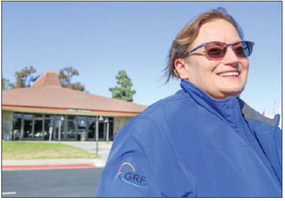Bring cups from home to avoid using polystyrene foam
MEMBER COLUMN
“A journey of a thousand miles begins with a single step.”
by Grace Kim
LW contributor
I came across an article in recent months about a large scale survey from 181 countries indicating that Millennials do care deeply about global issues and are determined to tackle them.
When asked who should be trusted to fix the issue of global climate change and environmental destruction, Millennials answered “international organizations and themselves.” They are keenly aware that their commitment and action are required for the survival of this beautiful and fragile planet and for future generations. The most precious and generous gift of life is from our God, the creator of all beings and all things!
There is abundant scientific evidence that the Earth is warming at an abnormal rate and the destruction of our natural environment is already in process.
It made me reflect deeply upon my own understanding of climate change and environmental destruction. Most importantly, I struggled with the critical question: Individually and collectively, what are we doing to help address this critical issue for younger generations as their elders and role models? A wise Native American saying came to mind: “Consider what you do today in terms of how it will affect our offspring seven generations hence.”
God has given us this amazing planet, the only home we have and know of in the universe. It is our privilege and responsibility to take care of it for our future generations to survive and thrive beyond our wildest imagination.
Polystyrene foam, also known by its trade name Styrofoam, has become an accepted everyday product. Studies show that it is harmful to the environment. It is not biodegradable, taking 500 years or more for it to be broken down.
Hydrofluorocarbons used in the production of Styrofoam and 57 harmful chemical byproducts released during its production pollute air and are linked to serious negative health impacts.
When polystyrene is consumed by fish, humans who eat the fish can experience toxic effects.
Microwaving polystyrenecauses the release of toxic chemicals, posing a threat to health.
There are health hazards for people working in the production of this material. Polystyrene is a major pollutant of oceans, bays and other water resources. And, the production of polystyrene is energy intensive, creating large amount of greenhouse gases.
Although there are many things we can do to contribute to this fight to help save our planet, I thought that we can together take that very first single step of a grand journey of a 1,000 miles. I would like to propose that we start bringing our own cups from home to use at our clubs and fellowship meetings instead of using polystyrene cups.
As my full-of-life, enthusiastic, ever optimistic 7-year-old great-grandniece often says, “I know we can do it!”




